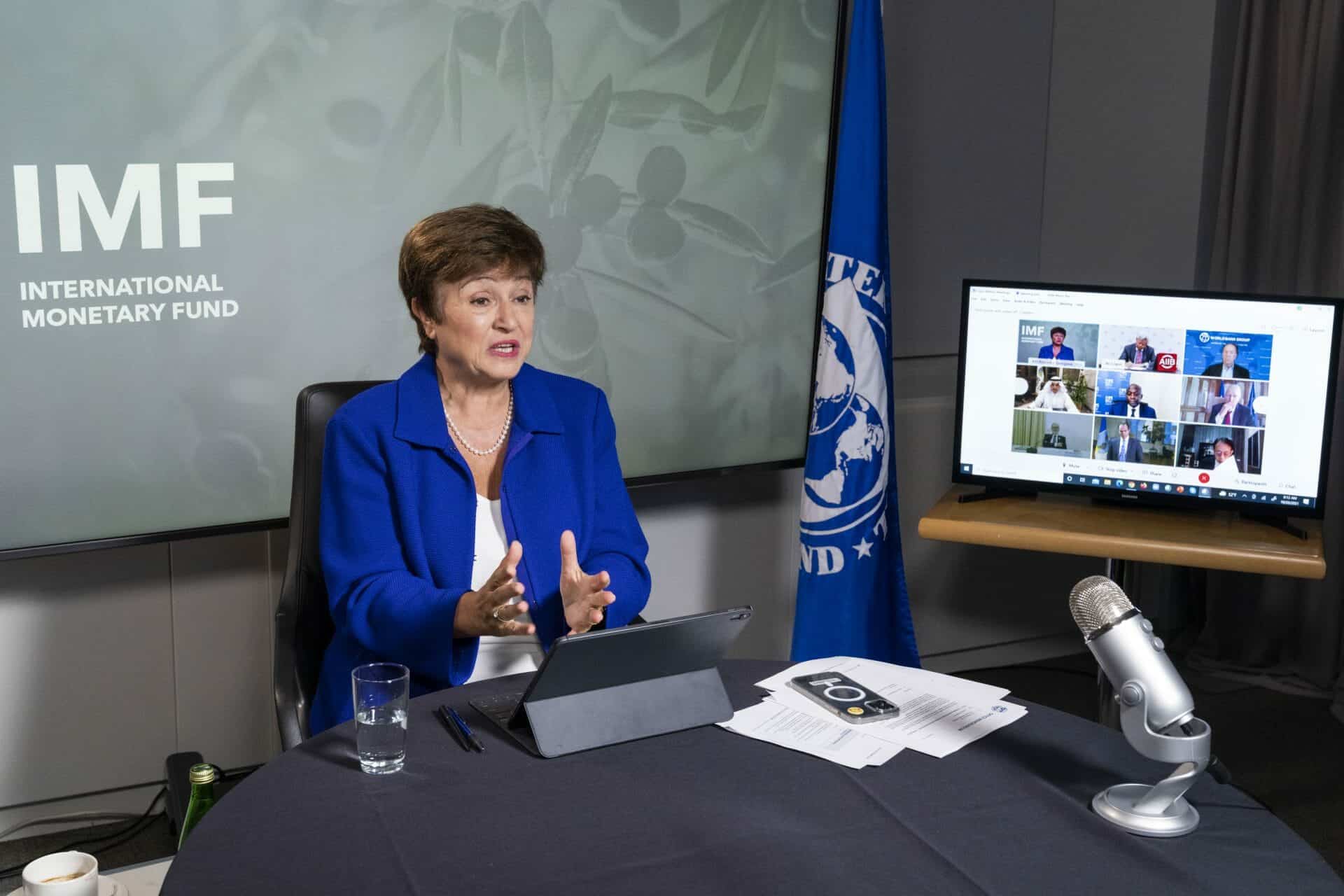Gulf Cooperation Council members and Morocco have shown significant economic improvement while other Arab countries are still trying to avoid further losses, said International Monetary Fund chief Kristalina Georgieva.
At the same time, inflation is rising at an alarming rate as a result of a deepening gap between the growing demands in countries that are recovering and the altered supply, she said.
In her speech at the Arab Fiscal Forum Virtual Ministerial Meeting, Georgieva addressed a wide range of critical concerns in Arab countries, among them the high unemployment rate of more than 11 percent and the crisis impact on entrepreneurs and startups.
IMF priorities
Georgieva hoped that inflation levels in the Arab countries would drop in 2022.
She said IMF’s top priorities include continuing vaccination campaigns against COVID-19 to ensure the well-being of the global economy; clear identification of the correct procedures for the circumstances of each country separately, amid the difficulty of making decisions for policymakers around the world and supporting central banks to remain vigilant towards inflationary pressures.
Growth forecasts for Arab countries
The IMF predicted that Morocco would have the highest growth rate in the Arab world in 2021 at 5.7 percent, thanks to the recovery of exports, the better performance of the agricultural sector, and the results of policies taken to combat the pandemic.
Djibouti came in second with 5 percent expected growth in 2021, followed by Palestine with 4.4 percent, Iraq 3.6 percent, Algeria 3.4 percent and Egypt with 3.3 percent.
Tunisian economy is expected to rise by 3 percent, followed by Saudi Arabia (2.8 percent), Mauritania (2.7 percent), the Sultanate of Oman (2.5 percent), the United Arab Emirates (2.2 percent), Jordan (2 percent), Qatar and Somalia (1.9 percent) and Kuwait and Sudan (0.9 percent).
Morocco leads the growth
Morocco has received $3 billion from the IMF in 2020, which allowed the country to enhance its liquidity and push multiple sectors. It also enabled Morocco to re-enter the capital markets with a highly successful issuance.
IMF provided about $16.6 billion to help nine Arab countries and to alleviate the debt burdens for three countries. The Arab world received $37.1 billion of the Fund’s historic SDR allocation of $650 billion.
Global economy to grow by 5.9 percent
Georgieva also mentioned that the global economy will increase by 5.9 percent in 2021 while forecasting that it would climb between 4.4 and 4.5 percent in 2022. The ongoing pace of delivering vaccines, and the lift in vaccination rates in many countries, as well as the support provided to businesses and families helped to revive the global economy, according to her assessment.
At the same time, Georgieva warned of the risks that may reappear in the coming months, especially since the costs of the pandemic are rising globally. She also emphasized the importance of achieving the desired goals, which include vaccinating 40 percent of the world’s population by the end of 2021, and 70 percent by mid-2022.








